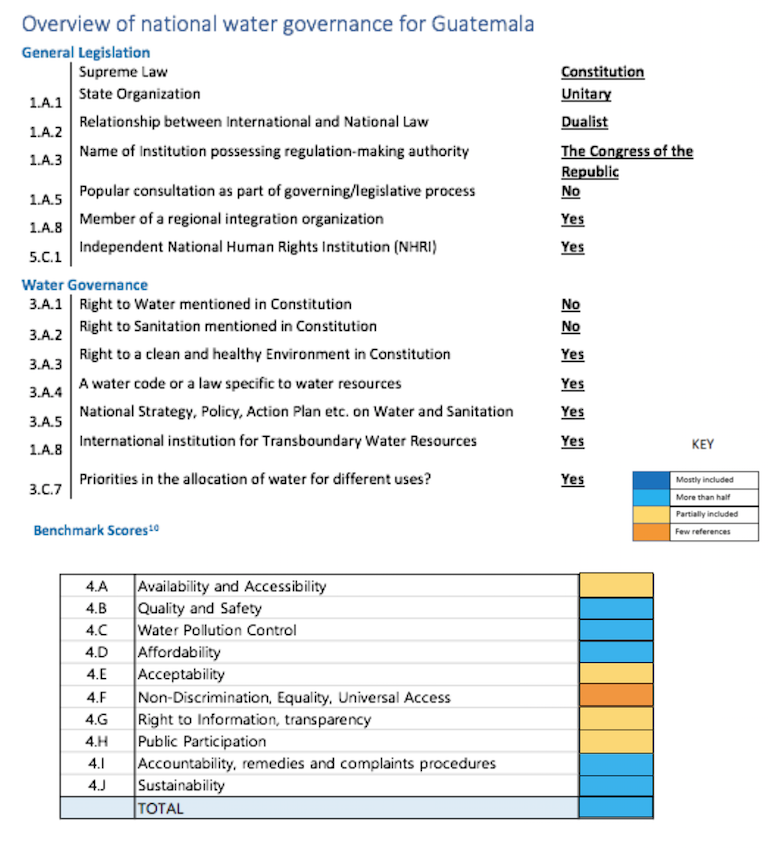Guatemala’s Constitution provides for the preservation of the environment and natural resources through the establishment of national parks and reserves, and the regulated exploitation of plant and animal life, land, and water. The country has invested significant efforts when it comes to certain aspects of guaranteeing the right to a clean and healthy environment (HRHE) and the human right to water and sanitation (HRWS). It scored well on our Country Legal Assessment regarding sustainability and quality and safety control. It recognises the right to a clean and healthy environment in the constitution, and some aspects of the HRWS through sub-national policies.
Guatemala is a unitary republic with three government branches. The Congress is the one responsible for ratifying the treaties. There is also a sub-national government which is the autonomous municipalities. While the HRWS is not explicitly mentioned in the constitution, there are references to the right to health around water accessibility and national plans available to manage this human right. The HRHE is explicitly mentioned in the constitution and specific laws and codes that reference both human rights.
In 1996, the country established the Authority for the Sustainable Management of the Atitlán Basin (AMSCLAE), this entity is not fully autonomous since it lacks adequate funding. While it has developed a plan to conserve the ecosystem of Lake Atitlán and its basin, this has not yet been approved.

Regarding HRWS, at a national level, the government has set national standards for water management, for example, the Ministry of Public Health and Social Assistance is responsible for monitoring drinking water quality through testing services. There are also government agencies responsible for specific river basins. Each of Guatemala’s 334 municipalities is responsible for the maintenance and provision of water management services.
The government has also established legislation to regulate the extraction and use of water. The subsoil is considered state water and there is a civil code that considers it to be immovable property, therefore there are non-transferable licenses that are needed for its use. On the other hand, groundwater can be exploited and there is no regulation that limits the volume that can be extracted. It has also established regulations to control and monitor the quality of groundwater aquifers through several ministerial agreements.
Finally, regarding water sustainability the mechanisms implemented in each municipality will vary according to local laws. It tries to ensure sustainable access to people who are suffering from water scarcity by adjusting the tariffs based on the regions and poverty rate. This tariff covers operating and maintenance costs with the main goal being that users pay as low as possible while receiving the correct quality and quantity of the service. The national human rights institution in Guatemala has the competency to receive complaints of violations of all human rights including HRWS and HRHE.
For detailed references and analysis please download the full report here.
Disclaimer: This is not a statement of compliance nor a legal review of this country. White & Case has provided valuable pro bono assistance for this project but bears no responsibility for the benchmarking of countries in the dashboard which reflects the sole view of Human Right 2 Water.
This information is a desktop review and has been generously provided as pro bono support, based on a preliminary research of the legal framework in this country. It will be verified by our legal team .in collaboration with local authorities.

